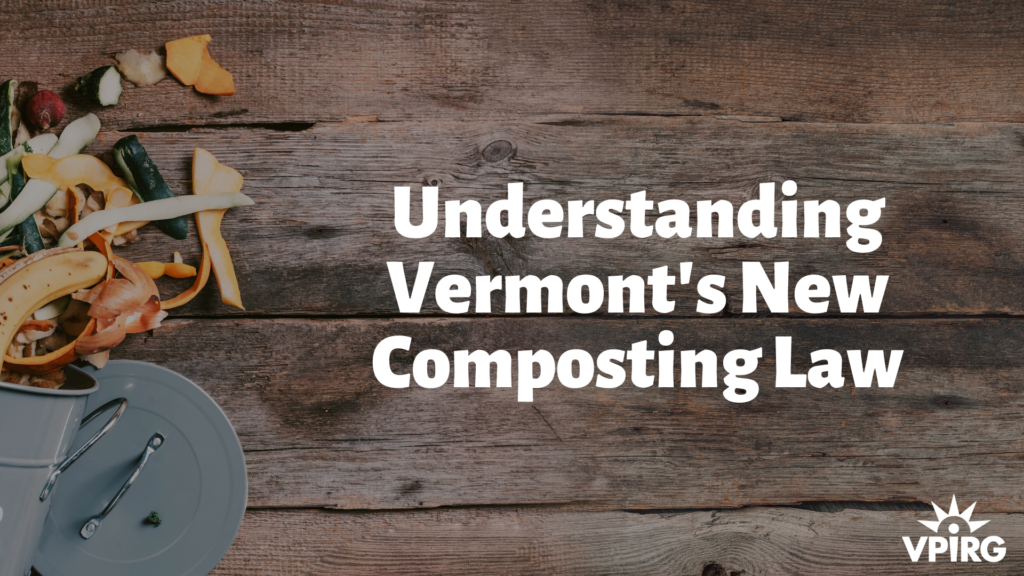As of July 1, 2020, Vermont state law bans food scraps from the trash.
Here’s what you need to know…
What’s Act 148?
In 2012, Vermont passed the Universal Recycling Law (Act 148), which had several waste-diversion provisions that would be phased in over the course of several years. The last of these measures, which bans food scraps and other organics from the trash, went into effect July 1, 2020.
This law represents an essential step towards diverting valuable resources – like recyclables and food scraps —from the landfill.
Why does it matter?
In Vermont, organic waste makes up 25% of a typical family’s waste. At food-service businesses, food scraps can make up 50% of waste.1 According to the FAO, 30% of food is wasted globally, comprising 8% of the world’s total greenhouse gas emissions. If food waste were a country, it would be the third greatest contributor to greenhouse gas emissions, after the U.S. and China. Why? Because when food scraps end up in landfills, the oxygen-deprived environment causes them to release methane, a greenhouse gas at least 25 times more potent than carbon dioxide.2
What can composting do about that?
Composted food does not emit methane, like the food that degrades in a landfill. And, it creates an extremely beneficial nutrient-rich soil amendment that can help to grow food, retain water in the soil, and soak up more greenhouse gases from the atmosphere. Because nearly 85% of food wasted in the U.S. occurs in stores, restaurants, and homes, requiring that businesses and residential homes divert their food scraps from the landfill will go a long way.
What types of food scraps can be composted?
You can think of compostable food scraps as any type of food that went bad or are unfinished. This includes foods like bread, pasta and dairy! Other organic materials that are not food scraps can be composted- coffee filters, some types of tea bags, and certain fiber-based materials like egg cartons, napkins, and paper towels (if you want to compost napkins or paper towels, do some research first to make sure they’re not chemically coated-including bleach!).
Can all those things be composted in my backyard compost?
If you’re composting in your own yard, you aren’t going to want to include things like meat, bones, and grease, because they don’t break down easily (if you’re composting in your backyard, the law allows you to put those things in the garbage). Also, certified compostable products like take-out containers, utensils, and straws, won’t break down in a backyard compost.
Are people going to go through my trash to make sure I’m not throwing out food scraps?
No.
Act 148 does not create “garbage police” that will look through your garbage. Instead, the state is investing resources in education and resources for Vermonters to learn about how to compost.
What if I don’t want a backyard compost?
You can purchase a solar digester, feed food scraps to animals (like chickens and pigs), drop off your compost at a compost facility, transfer station/bag-drop, or a small-scale composter (check with neighbors and farms in your area!), or subscribe to a curbside pick-up service. A statewide list of food scrap haulers and the areas they serve can be found at the Vermont DEC’s website: https://dec.vermont.gov/sites/dec/files/wmp/SolidWaste/Documents/FoodScrapHaulersSTATEWIDELIST.pdf. For more information on what is available in your area, you can contact your waste management district or town.
Will my food scraps be turned into compost no matter which option I choose?
No. A solar digester will break down your organics too much to be used as compost. Depending where you live, food scraps you drop off at transfer station or that get picked up may be headed to an anerobic digester, which turns organics into a biogas.

